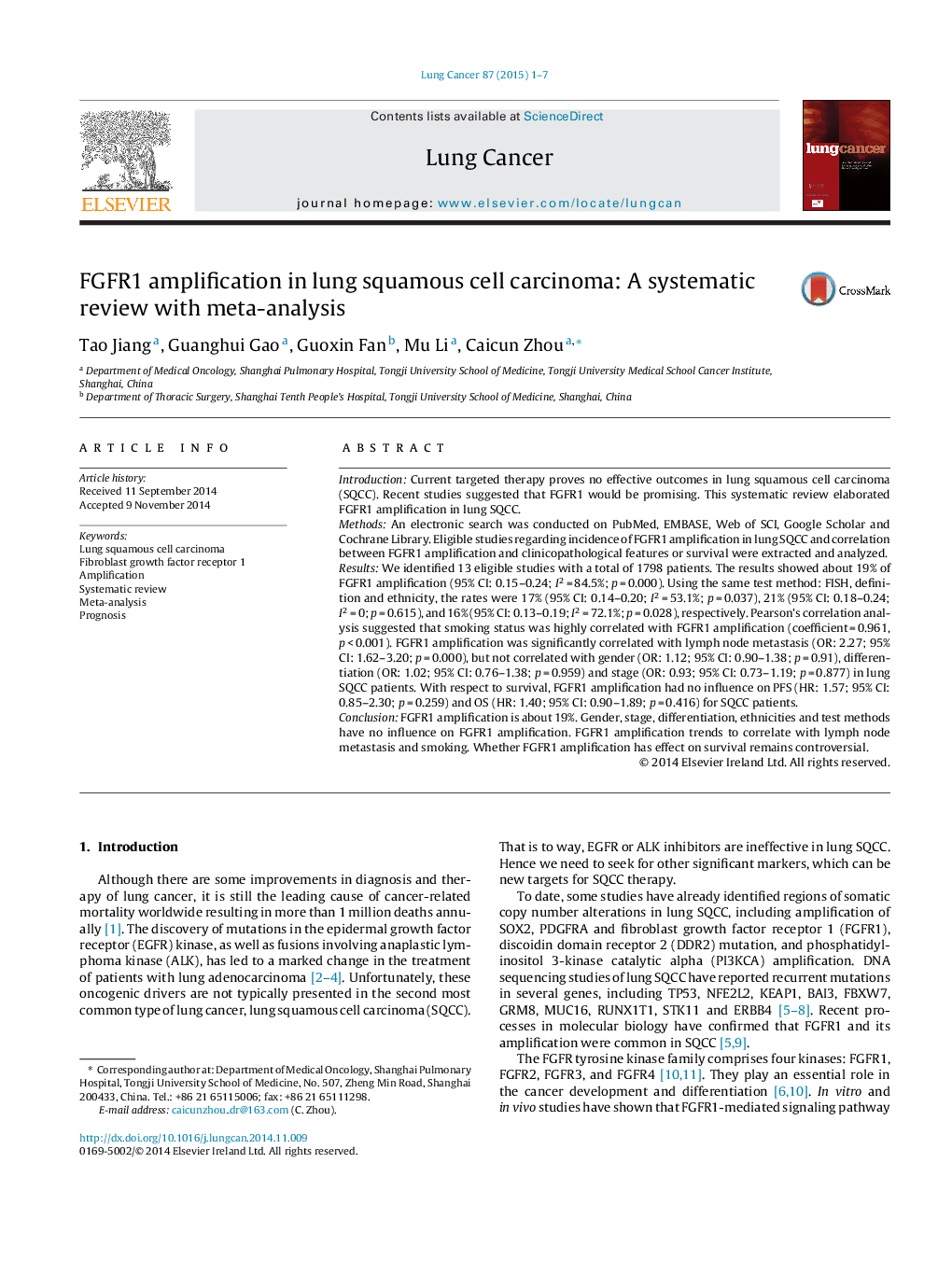| کد مقاله | کد نشریه | سال انتشار | مقاله انگلیسی | نسخه تمام متن |
|---|---|---|---|---|
| 2140782 | 1088261 | 2015 | 7 صفحه PDF | دانلود رایگان |

• FGFR1 amplification is about 19% in lung squamous cell carcinoma patients.
• Gender, stage, differentiation, ethnicities and test methods have no influence on FGFR1 amplification.
• FGFR1 amplification trends to correlate with lymph node metastasis and smoking.
• Whether FGFR1 amplification has the effect on survival remains controversial.
IntroductionCurrent targeted therapy proves no effective outcomes in lung squamous cell carcinoma (SQCC). Recent studies suggested that FGFR1 would be promising. This systematic review elaborated FGFR1 amplification in lung SQCC.MethodsAn electronic search was conducted on PubMed, EMBASE, Web of SCI, Google Scholar and Cochrane Library. Eligible studies regarding incidence of FGFR1 amplification in lung SQCC and correlation between FGFR1 amplification and clinicopathological features or survival were extracted and analyzed.ResultsWe identified 13 eligible studies with a total of 1798 patients. The results showed about 19% of FGFR1 amplification (95% CI: 0.15–0.24; I2 = 84.5%; p = 0.000). Using the same test method: FISH, definition and ethnicity, the rates were 17% (95% CI: 0.14–0.20; I2 = 53.1%; p = 0.037), 21% (95% CI: 0.18–0.24; I2 = 0; p = 0.615), and 16% (95% CI: 0.13–0.19; I2 = 72.1%; p = 0.028), respectively. Pearson's correlation analysis suggested that smoking status was highly correlated with FGFR1 amplification (coefficient = 0.961, p < 0.001). FGFR1 amplification was significantly correlated with lymph node metastasis (OR: 2.27; 95% CI: 1.62–3.20; p = 0.000), but not correlated with gender (OR: 1.12; 95% CI: 0.90–1.38; p = 0.91), differentiation (OR: 1.02; 95% CI: 0.76–1.38; p = 0.959) and stage (OR: 0.93; 95% CI: 0.73–1.19; p = 0.877) in lung SQCC patients. With respect to survival, FGFR1 amplification had no influence on PFS (HR: 1.57; 95% CI: 0.85–2.30; p = 0.259) and OS (HR: 1.40; 95% CI: 0.90–1.89; p = 0.416) for SQCC patients.ConclusionFGFR1 amplification is about 19%. Gender, stage, differentiation, ethnicities and test methods have no influence on FGFR1 amplification. FGFR1 amplification trends to correlate with lymph node metastasis and smoking. Whether FGFR1 amplification has effect on survival remains controversial.
Journal: Lung Cancer - Volume 87, Issue 1, January 2015, Pages 1–7